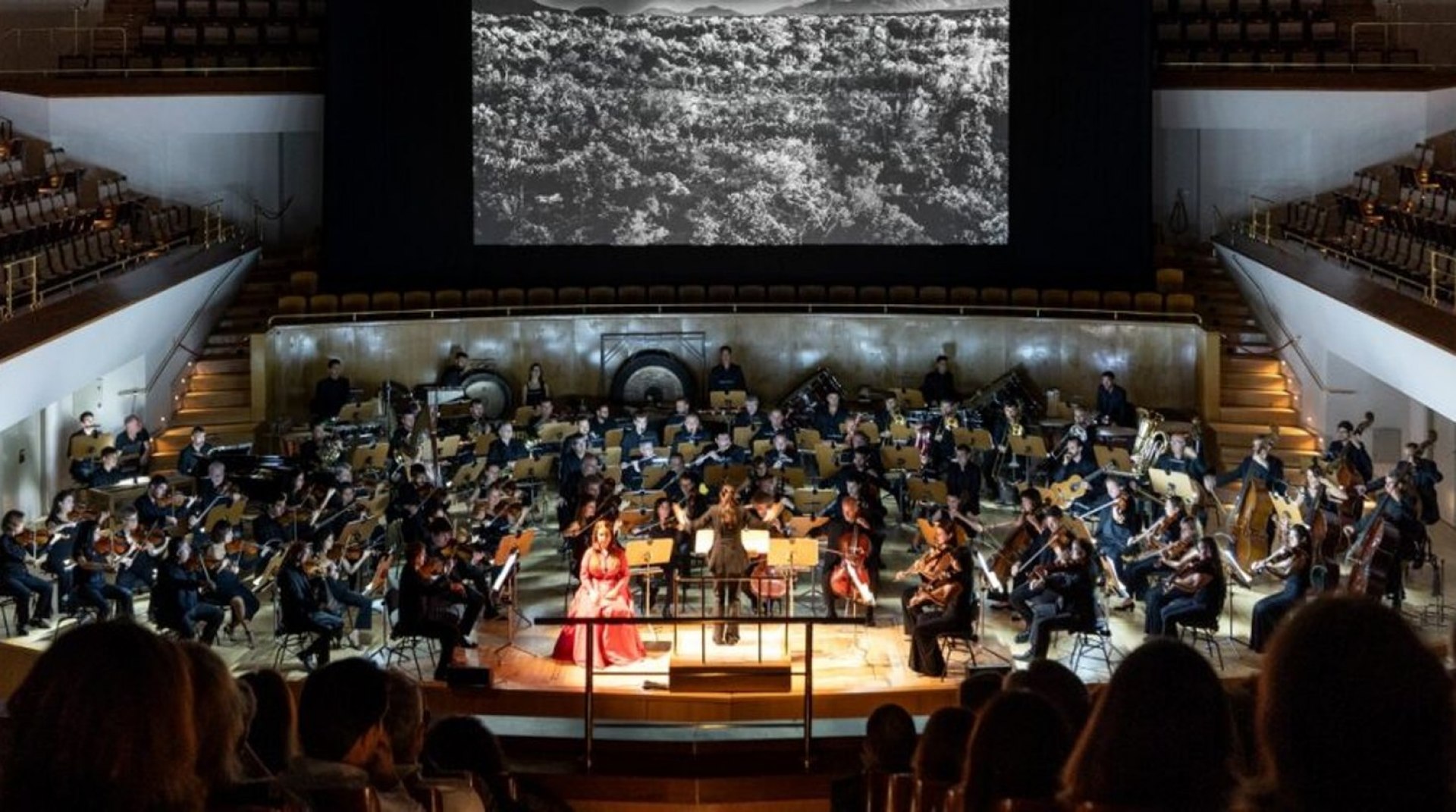Amazônia
Mo | Tu | We | Th | Fr | Sa | Su |
Symphonic Cycle of the Gran Teatre del Liceu Orchestra
Heitor Villa-Lobos and Philip Glass with the Projection of Sebastião Salgado's Work
On November 26, the Gran Teatre del Liceu Orchestra will present the extraordinary concert "Amazônia" by Sebastião Salgado, as part of a broader project by the Brazilian photographer who, over the last seven years, has traveled through the Amazon and visited its people.
During the concert, the music will be accompanied by the projection of over 200 images by the great photographer, which sublime the beauty of nature while warning of the importance of preserving this unique natural environment. Approaching his eightieth birthday and more active than ever, Brazilian artist Sebastião Salgado is one of the most internationally acclaimed and awarded contemporary photographers.
In addition to the thematic exhibition presented in Barcelona, Salgado's work denounces the fragility of the world and calls for the need to respect and care for it.
A rhythmic musical program that features as its centerpiece Villa-Lobos's Suite "A floresta do Amazonas," based on the soundtrack of Mel Ferrer's film "Green Mansions." With lush and tropical music that sings of Brazil's rivers, seas, and describes the lushness of the Amazon rainforest.
Salgado's spectacular black and white images will showcase the immensity of the Amazon, depicting endless forest landscapes and impossible meanders, including beautiful images of the indigenous peoples who live in these forests. More than two hundred tribes, some of which have no contact with civilized humans.
An evening of sensitivity and a message that challenges us.
Program and cast
Approximate Duration: 1h 20min
PHOTOGRAPHER: Sebastião Salgado
CONDUCTOR: Simone Menezes
SYMPHONY ORCHESTRA OF THE GRAN TEATRE DEL LICEU
Soprano: Camila Provenzale
Program
H. Villa-Lobos Prelude (Bachianas brasileiras No. 4)
P. Glass Metamorphosis I (Aguas da Amazonia) (orch. Charles Coleman)
H. Villa-Lobos A floresta do Amazonas
Gran Teatre del Liceu
Barcelona's opera house, the Gran Teatre del Liceu, was founded on the Rambla in 1847 and has continued over the years to fulfil its role as a culture and arts centre and one of the symbols of the city.
Today it is publicly-owned (by the Government of Catalonia, Barcelona City Council, Barcelona Provincial Council and the Ministerio de Educación, Cultura y Deporte) and administered by the Fundació del Gran Teatre del Liceu which, in addition to the aforementioned bodies, incorporates the Patronage Council and the Societat del Gran Teatre del Liceu (the old society of owners).
Origins: From 1837 to 1847
The Liceu evolved out of the Sociedad Dramática de Aficionados (Society of theatre-lovers) set up in 1837 at the instigation of Manuel Gibert in the former convent of Montsió by members of the National Militia, an organization of armed citizens with liberal leanings.
Barcelona's economy and population were growing fast at the time and the city needed a music conservatory. This led to the conversion of the Sociedad Dramática into the Liceo Filármonico Dramático Barcelonés de S.M. la Reina Isabel II (Barcelona Dramatic and Philharmonic Lyceum of HM Queen Isabel II). In addition to its theatrical activities, the new organization cultivated Italian-style singing and music.
The building on the Rambla
The original building was solemnly opened on 4 April 1847. The plans had been drawn up by Miquel Garriga i Roca, subsequently assisted by Josep Oriol Mestres. The project was funded by selling shares, which meant that many of the boxes and seats were to be privately owned. The shareholders formed the Societat del Gran Teatre del Liceu, known as the “Societat de Propietaris” (Society of Owners), which was in sole charge of running the Gran Teatre del Liceu from 1855 onwards, after it was legally separated from the Conservatori del Gran Teatre del Liceu.
The theatre was operated by impresarios who were given a concession to stage a specific number of productions in exchange for the proceeds from the sale of tickets not reserved for the Societat itself. This system was to endure until 1980.
The creation of the Consortium
By the last quarter of the 20th century this management system was no longer viable. In 1980, to avert the danger of the disappearance of an institution of such worldwide cultural renown, the Generalitat Catalonia's first government in modern times – set up a consortium, the Consorci del Gran Teatre del Liceu, which also incorporated Barcelona City Council and the Societat del Gran Teatre del Liceu. Barcelona Provincial Council joined the Consortium in 1985, followed by the Spanish Ministry of Culture in 1986. From then on the Consortium took over operation of the theatre.

 EN
EN DE
DE IT
IT FR
FR ES
ES RU
RU JP
JP RO
RO
